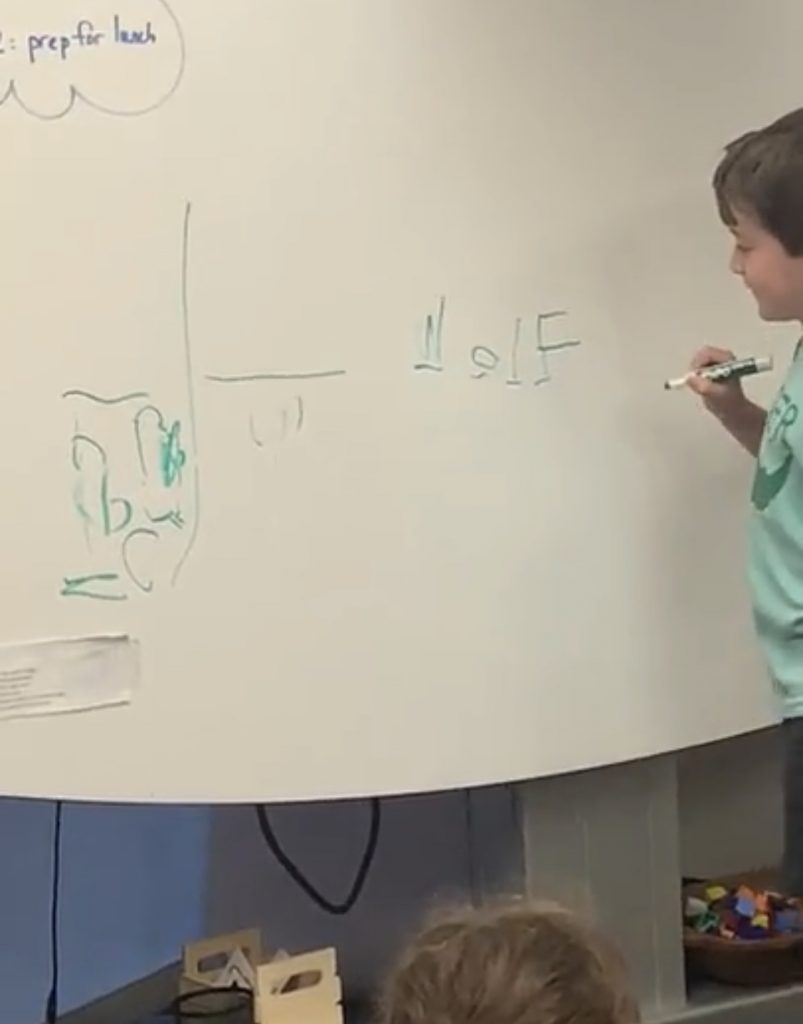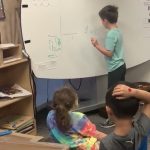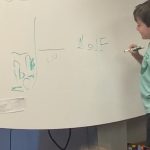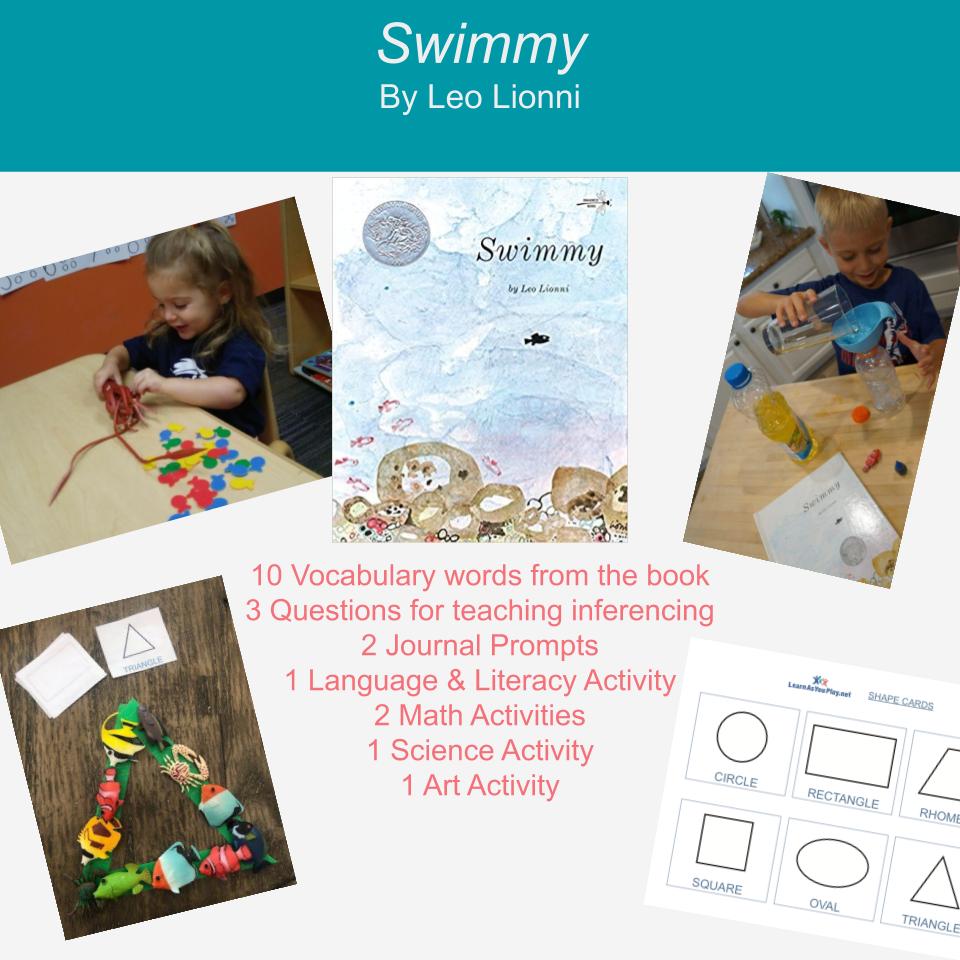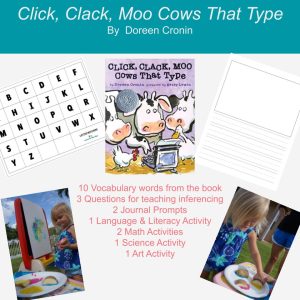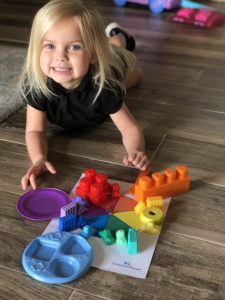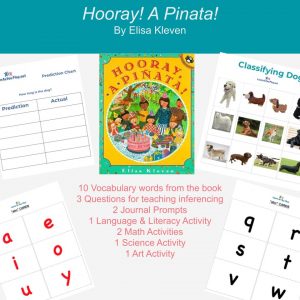Written by Debbie Markland, July 14, 2019
In early spring, my colleague told me about how she had been playing a preschool version of hangman with her Pre K class. Of course- we all love hangman. It was a great time filler growing up… in elementary or middle school. I was not quite sure what she was thinking- after all the game’s purpose, as we played, was to prevent a man from not being hanged. Yikes! But…. that is why she turned it into a preschool version- and we began to call it Mystery Word.
The game became a great “time filler” – used during those wavering ten minutes we all have when we don’t know what to do, or even used purposefully because the children in my class loved it, and at times, they would request it- Do we have time for Mystery Word?
Here is how it works…
I would come up with a word. Any word. Sometimes it was a word they knew. Sometimes it wasn’t. Sometimes it was a short word (when I didn’t have much time) and at other times it was long. I could use it to bring up a vocabulary word- pushing in new words to help develop their literacy. I could choose a word to teach certain phonological concept, like a compound word. Or sometimes I would just choose a word related to what we were talking about- and yes- sometimes I did come up with words to express my mood such as on a Friday afternoon- I’d choose the word w-e-e-k-e-n-d!
After deciding on the word (let’s go with b-o-b-c-a-t), the class would watch as I would write the correct number of blank lines/ dashes to represent the letters in the word. So right then and there I was reminding them that words are made up of letters. And of course that is throwing in a little bit of math as we would always count the blanks to determine how many letters were in the word. So the board would look like this to show the word had six letters:
____ ____ ____ ____ ____ ____
When we first started playing the game, the children would take turns raising their hand and guessing letters. It was random at first. As they guessed letters, if the letter was in the word I would place it in the correct spot(s). If it was not in the word, I would write it off to the side to remind them not to guess it again. This in itself was a great lesson in listening. Some would guess a letter and the class would then remind them that someone had already guessed it. As we played the game more and more, I decided this was a great time to introduce vowels and consonants. While this is not necessarily a mastered prek skill for all in my class, some in my class picked up on it easily and others were at least benefitting from the exposure. So, I started to encourage guessing vowels first. My board at this point might look like this:
____ o ____ c a t
consonants vowels
d e
f i
u
I also would work on strategic thinking. How could you know what letters to guess? They could look around the room, they could say the ABCs in their head, or they could guess letters from their name. At this point in this particular word, I would also discuss if they see a word already. If not, I would segment that word into phonemes and sound it out with them. This would also be a time to discuss “abnormal” phonic rules if it was present in the word. For example, if I had chosen the word p-h-o-n-e, and they had guessed only the p and the h, I would let them know that that makes the /f/ sound. Or if they had guessed o-n-e, I might explain the silent e rule.
Once the word was guessed, b-o-b-c-a-t. I would point out that there are 2 vowels. We would then talk about syllables and clap the word, and ummmm…. two vowel sounds, two syllables.
I love playing this game. I feel like so many phonological awareness, alphabet concepts and written print are being demonstrated. It naturally guides itself towards differentiation as well. In fact, I had a child who was reading already and one time I put him in charge- he came up with the word and guided the class through the whole game. And, the bonus was, his reading was above average, but he was not a fan of writing/ letter formation. This motivated him. He loved writing the letters on the board!
Give it a try!
 About the Author: Debbie Markland
About the Author: Debbie Markland
Hi! I am Debbie Markland, Education Consultant for Learn As You Play. I teach with Shann in Atlanta, Georgia where I teach a class of 16 pre-k students. I have taught for 18 years total! I have worked with age 2 all the way through middle school. I have enjoyed watching the ebb and flow of educational practices since I first taught in 1991, and being immersed in these changes enables my own learning to continue. I like to describe myself as flexible, creative, and open-minded. I strive to continuously be building curiosity in my students!

